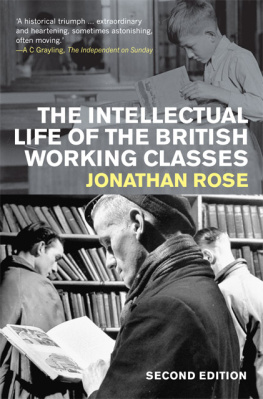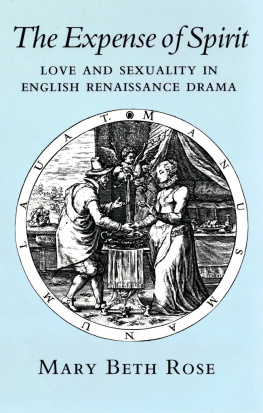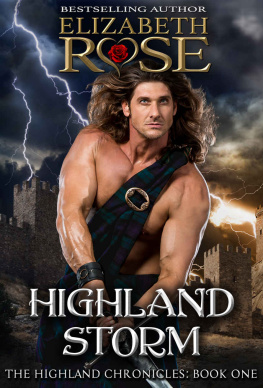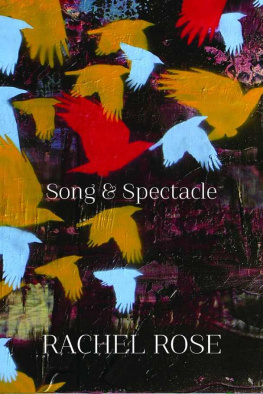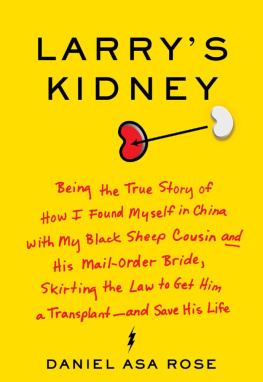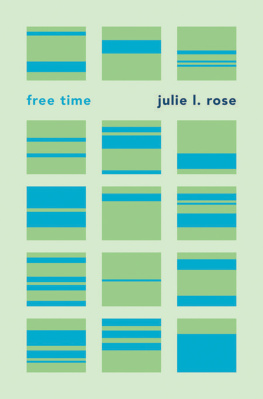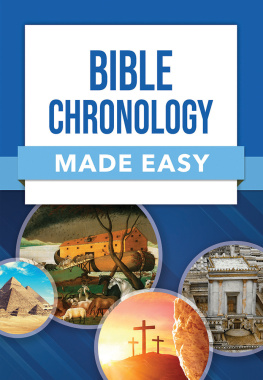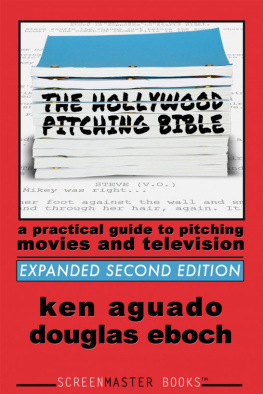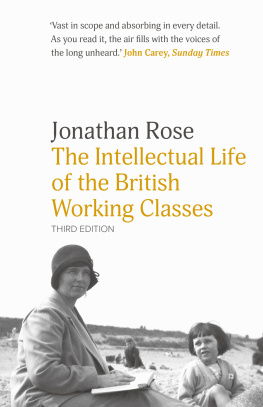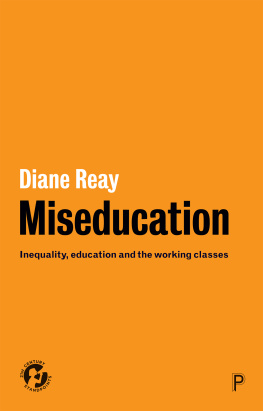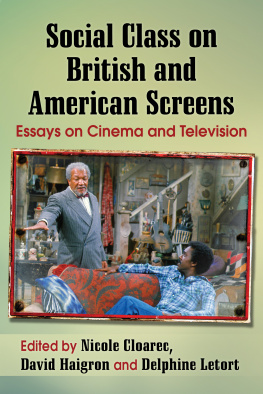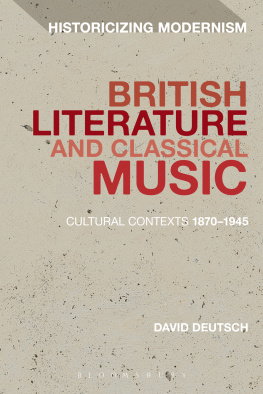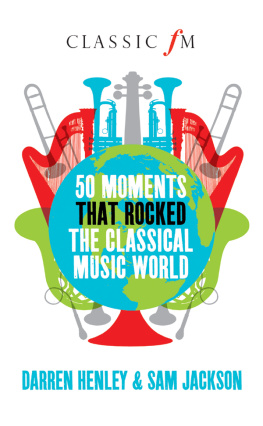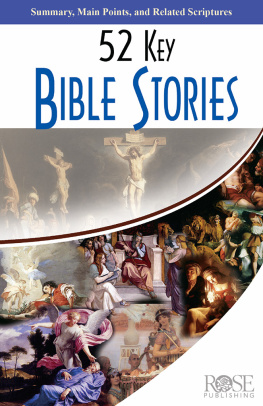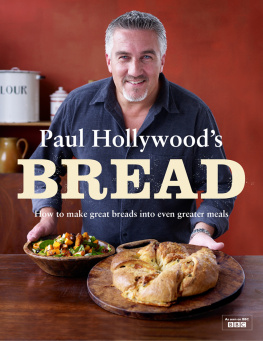THE INTELLECTUAL LIFE OF THE BRITISH WORKING CLASSES
J ONATHAN R OSE is Professor of History at Drew University and founder of the Society for the History of Authorship, Reading and Publishing
Every so often a book appears that challenges the received wisdom on a particular subject, reverses what has been taken for granted and sparks off new ideas that can have consequences for the future of society. Jonathan Roses large volume does just that.John Calder, Scotsman
an astonishing readIan Sansom, Guardian
a book of major significance for British social history and a troubling text for anyone concerned about the destiny of British societyPaul Smith, Times Literary Supplement
Roses book which has the great virtues of clarity, wit and pungent opinion is a brilliant and often moving record of what was achieveda history, in its way, of discovery, of individual lives enhanced by the desire to know more and to know differently it deserves its place alongside Richard Hoggart and Martin Weineralongside the writers who have yielded important new insights into our cultural ancestry and who shed light on ourselvesIan Jack, Daily Telegraph
A superb book much more comprehensive than anything by Raymond Williams or Richard Hoggart, and bears comparison with the best work of Edward Thompson and the late Raphael Samuel. I found the experience of immersion in it to be lastingly movinglike reading the poetry of John Clare, say, or Thomas Gray.Christopher Hitchens, The Times
Mr. Rose has written a work of staggering ambition whose real aim is to rehabilitate the democratic idea that the best of culture is for everyone. [Those] who care about literature, democracy and equality can rejoice, because Jonathan Rose has given them something new and important to read.Daniel Akst, Wall Street Journal
It is hard to stress how important this book is. Mr Rose has swept away the lingering guesswork and approximation about the intellectual life of the British working classesThe Economist
a treasure chest a feast of the memories and pleasures of British working-class readersPaul Foot, The Oldie
a brilliantly readable work which exposes the lie behind the patronising notion that works of great literature, art or music are irrelevant to the lives of ordinary peoplePhilip Pullman, Daily Mail
beautifully written, shrewdly perceptive and consistently engagingJohn Gardiner, BBC History Magazine

Copyright 2001 by Jonathan Rose
First published in paperback as a Yale Nota Bene book in 2002
Second edition published in paperback in 2010
Published with assistance from the Annie Burr Lewis Fund.
All rights reserved. This book may not be reproduced in whole or in part, in any form (beyond that copying permitted by Sections 107 and 108 of the U.S. Copyright Law and except by reviewers for the public press), without written permission from the publishers.
A Conservative Canon: Cultural Lag in British Working-Class Reading Habits, from Libraries and Culture 33:1, pp. 98104. Copyright by the University of Texas Press. All rights reserved.
Willingly to School: The Working-Class Response to Elementary Education in Britain, 18751918, from Journal of British Studies, 32:2, pp. 11438, published by the University of Chicago Press. 1993 by the North American Conference on British Studies. All rights reserved.
For information about this and other Yale University Press publications, please contact:
U.S. Office:
Europe Office:
Set in Adobe Garamond and News Gothic by Northern Phototypesetting Co. Ltd, Bolton
Printed in Great Britain by Hobbs the Printers Ltd, Totton, Hampshire
The Library of Congress has catalogued the hardcover edition as follows:
Rose, Jonathan, 1952
The intellectual life of the British working classes/Jonathan Rose.
p. cm.
Includes bibliographical references and index.
ISBN 9780300088861
1 Working classBooks and readingGreat BritainHistory. 2. Working classGreat BritainIntellectual life. 3. Books and readingGreat BritainHistory. 4. Great BritainIntellectual life. I. Title.
Z1039.L3 R67 2001
028.90941dc21 00068562
ISBN: 9780300153651 (pbk)
A catalogue record for this book is available from the British Library.

The paper used for the text pages of this book is FSC certified. FSC (The Forest Stewardship Council) is an international network to promote responsible management of the worlds forests.
10 9 8 7 6 5 4 3 2 1
Contents
Scottish Overture I
The Milkmaids Iliad
Knowledge and Power
Literature and Dogma
Conservative Authors and Radical Readers
The Craftsmans Tools
Scottish Overture II
Self-Culture
Proletarian Science
How They Got On
Chekhov in Canning Town
A Common Culture?
Cinderella as Documentary
Audience Participation
Blood, Iron, and Scripture
New Crusoes
Pickwickian Realism
A General Theory of Rubbish
The Peoples Bard
The Hundred Best Books
Everymans Library
Catching Up
A Better-Than-Nothing Institute
Possibilities of Infinitude
Strict but Just
Parental Support
Unmanly Education
Regrets and Discontents
Sheffield 1918
Wagner and Hoot Gibson
Aristotle and Dr. Stopes
Current Affairs
The Right to Language
The Most Unlikely People Buy Books Now
An Underground University
Marx, Jane Eyre, Tarzan
Decline and Fall
The Ruskin Rebellion
The Difficulty about That
What Did the Students Want?
The Reward
Evangelical Materalism
Have You Read Marx?
Unethical Socialism
Stalin Reads Thackeray
Greyfriars Children
Adolescent Propaganda
Marlborough and All That
A Map of the World
Building Jerusalem
To the West
Recessional
The Function of Penny Dreadfuls
Poverty and Indiscrimination
Boys Stories for Girls
The Dog That Was Down
Uses and Gratifications
Restricting Literacy
The Insubordination of the Clerks
The Bridge
By Office Boys for Office Boys
The Better Hole
Cultural Triage
On the Fringe
Where is Bohemia?
Before the Youth Culture
What Went Wrong?
Tables
Favorite Authors of Early Labour MPs, 1906
Holdings in Eighteenth-Century Scottish Libraries
Favorite Novelists of London WEA Students, 1936
Guides to Book Selection, 1944
Party Affiliation
Religion in Which Respondent Was Raised
Fathers Class
School Experience: Did the Respondent Enjoy School?
Rating Teachers: Did the Respondent Like the Teachers?
Respondents Reporting Corporal Punishment
Feelings on Leaving School
Respondents Reporting Parental Interest in Their Education
Cross-tabulating Parental Interest
Attitudes toward Education, 1944
Respondents Expressing Regrets Concerning Education
Name Recognition in Working-Class Sheffield, 1918
Expressed Interest in Radio Programs, 1938
Cultural Interests of Newspaper Readers, 1948
Ability to Identify Cabinet Members, 1942
Reading in Parents Home, 1944
Average Hours Per Week Spent Reading, 1944
Books Read by Senior School Pupils, 1940
Percentage of Female to Male WEA Students, 191328
Hours Per Week Devoted to Reading, London WEA Students, 1936
Acknowledgements
Next page
